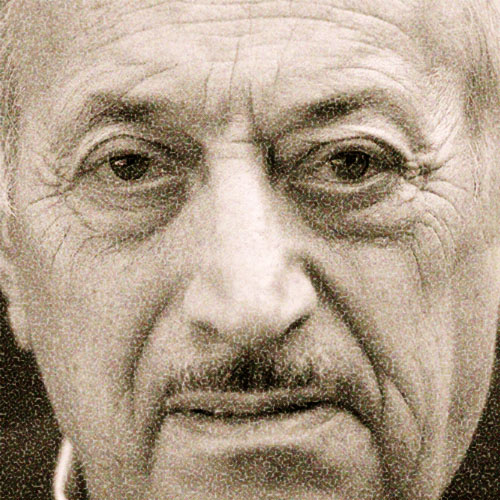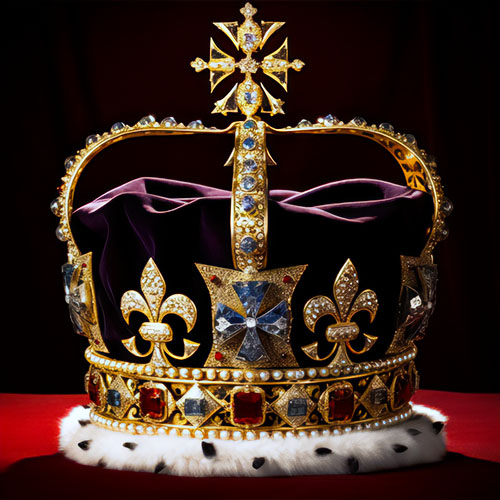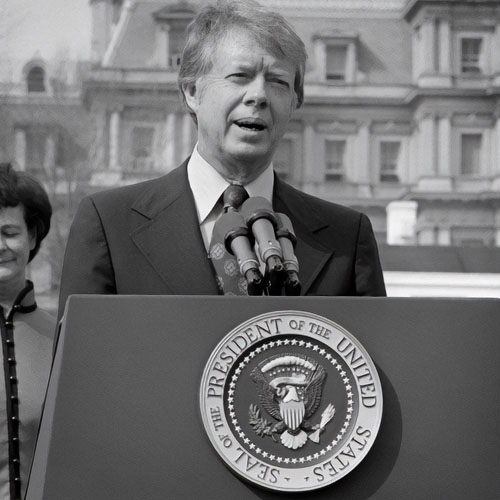Two years after settling the historic lawsuit that almost destroyed the president of the United States and made her an international celebrity, the plaintiff of Jones v. Clinton is unhappy and frustrated with the way things have worked out.
The Perils of Paula Jones
For the first time, she is willing to talk about how she was manipulated by Bill Clinton’s conservative enemies in their unrelenting effort to ruin him-and was then abruptly left to fend for herself when she no longer served their purposes. “I was being used by a lot of people to get to him,” she told Penthouse in an exclusive interview.
Perhaps even more significantly, she reveals that she was pressured to reject Clinton’s offer of a settlement that would have spared the nation a year of agony and, ironically, would have been much better for Jones herself. Whatever the merits of her claim that she was sexually harassed by Clinton in 1991, Paula Corbin Jones never received the apology she had demanded to clear her supposedly damaged reputation. More than four fifths of the $850,000 settlement paid out by Clinton in 1998 went to cover the bills of her various lawyers (including an attorney she was forced to hire to resolve disputes over how much each of the other lawyers should receive). The Internal Revenue Service claimed much of what was left over for delinquent taxes. Her marriage to Stephen Jones, strained by the five-year battle with the White House, has ended in divorce and a rancorous custody dispute. The book and movie deals she once contemplated never came to fruition.
She is now an unemployed mother of two young children, living again in her native Arkansas. And, in yet a final ironic twist, she is also a defendant in at least two additional lawsuits arising from the operations of the Paula Jones Legal Fund, which raised hundreds of thousands of dollars on her behalf.
She mentions that she felt “used” by such famed Clinton antagonists as Larry Nichols, Cliff Jackson, and Pat Matrisciana, the last of whom featured an interview with her and her husband Steve in Matrisciana’s scurrilous anti-Clinton videotape, Circle of Power. “I hated it,” she says of her association with the far right. “It’s a shame too, when you get in these kinds of political battles, a lot of people want to start showing up that you don’t really want to have anything to do with,” Jones admits with a rueful laugh— “you know, the people that have their own political gains [at stake], and they want to start trying to pull you into it. And then it makes us look like we’ve got a political motive.”
If Paula had no political motive of her own, she seems to have been oblivious to the manipulation of her lawuit by people with powerful hidden agendas. Top Republican operatives and various longtime enemies of Clinton began a persistent, sometimes coordinated campaign to ruin him even before he had decided to run for president in 1992 (as Gene Lyons and I have explained in The Hunting of the President, our book published this year by St. Martin’s Press).
By the time Jones told her tawdry story, right-wing activists across the nation, from Little Rock and San Diego to Chicago and Charlottesville, Virginia, were spreading every possible kind of scurrilous personal accusation against Clinton. Jerry Falwell distributed hundreds of thousands of videotapes that accused the president of drug smuggling and murder conspiracy; several top Republican lawyers, associated with prestigious firms, spent many hours and thousands of dollars trying to “prove” that Clinton had fathered a baby with a black prostitute.
In the eyes of so many of these fanatical adversaries, Paula Jones looked like the answer to their prayers. They rushed to her side, but-as she now is beginning to suspect-they regarded her mainly as a useful instrument for their own purposes. When those goals had been met, most of her “friends” on the right no longer had any interest in what became of her.
The 34-year-old Jones looks smaller, younger, and so much more vulnerable in person than in countless newspaper photographs. When we meet at the Excelsior Hotel in Little Rock, Arkansas, location of the alleged incident, she is dressed like a summer student in tight overall shorts and sandals. Her perky, cheerful demeanor and high-pitched, girlish drawl don’t entirely conceal her angry sense that she was “done wrong,” not only by the Clintons and their allies but by people who had claimed to be her friends.
“I felt that I should have got more than what I got,” she complains. “I’m not happy about it, I will say that. I’m not happy about it. Because I feel a lot of times that attorneys think about the end and what they’re going to get and the money and stuff, and that’s why they keep going, instead of for their client.” Not wishing to sound ungrateful, she hastens to add, “I appreciate what they did for me. I really do. I’m not saying I don’t. But I feel like I came out with the raw end of the stick, you know?”
How Jones ended up holding “the raw end of the stick” is a rather complicated story with serious political implications. At the time that her lawsuit against Clinton might have been settled, she was persuaded to reject an agreement that was probably in her own best interest.
For Jones, it would have meant a far more lucrative payout and an earlier return to a normal life. For the president and the nation, it would have prevented the humiliating depositions that ultimately led to the exposure of a Monica Lewinsky, the Starr Report, and the ensuing crisis of impeachment.
Years from now, historians who assess the struggle between Clinton and his enemies are likely to regard the fall of 1997 as an important turning point. Asked what she would change now if she could, Jones says somewhat poignantly, “I would have settled. If I could have called him up… I would have called up and just settled and got out, I really would have. I mean, just because of what I’ve been through and stuff.” Why then did she decide against settling three years ago, even after her own lawyers prophetically warned that her lawsuit was unlikely to succeed?
During our exclusive interview with Jones, she seemed strikingly uncertain about the answer to that question as well as about other significant aspects of her lawsuit. She was unable to remember many details and often referred me to advisers who she said would know much more than she. It soon became clear that the most important issues had been decided by her lawyers, her then-husband, or her advisers.
“I was kind of at the hands of everybody else,” she admits. “You know, everybody who was supposed to be taking care of all this stuff. And I was just sitting back, taking care of [my] kids and worrying all the time.”
According to attorneys on both sides, they had secretly negotiated a tentative deal by early August 1997. Under its terms, the president would issue a statement acknowledging that Jones had done “nothing wrong” and pay her the sum of $700,000 . That was exactly the amount she’d demanded in her original complaint. Bolstered by the landmark Supreme Court decision a few months earlier that had permitted her lawsuit to proceed against a sitting president, Jones could have declared a moral victory and gone home with her winnings.
None of her far-right “allies” let Paula know their agenda. “Do you think they would actually tell me?” she asks. “No, they didn’t.”
But it was not to be. Jones, who says she’d always hoped for an out-of-court settlement, was instead prevailed upon by her husband and other advisers, notably Susan Carpenter-McMillan, to turn down the deal. Brassy-blonde antiabortion activist Carpenter-McMillan convinced Jones that she could win more money and full vindication of her good character only if Paula continued to press toward a trial.
“Oh, no, she sure didn’t want me to settle,” says Jones of the woman she says she came to trust like an older sister. “She knew that I could prove my case and win. And that was the reason they gave me, anyway.”
Jones says her husband and advisers insisted that there had been no bona fide offer from Clinton, anyway. Discussing the potential agreement, she sounds rather naive about how private lawsuits are settled — as if she somehow expected Clinton and his lawyers to announce their offer at a press conference instead of making a deal behind closed doors.
“Believe me, if there was a settlement offer, and if it was public, and if they [had] come out and said that, I would have settled in a heartbeat,” Jones says. “I didn’t want it to go this far. But even though I wanted to settle it, you know, people would turn my opinion around that, no, we’re going to get this thing to court, we’re going to go to trial, we’re going to prove this.”
Her rejection of the proposed settlement in late August infuriated not only the president’s attorney, Robert Bennett, but Jones’s own original attorneys, Gilbert K. Davis and Joseph Cammarata. They had already spent hundreds of thousands of dollars pursuing a case that they felt had suddenly been transformed from a legitimate civil complaint into an unethical political vendetta. After trying for several weeks to convince Paula to relent, the two lawyers resigned in early September and asked the court to relieve them of their responsibility to represent her, citing “fundamental differences” with their client as well as ethical concerns.
Jones says she is still upset with Davis and Cammarata for resigning. “I don’t understand why, until this day, really and truly. And I would love to know why they quit my case just like that,” she says, snapping her fingers. “They said it was because I turned down a settlement offer, and there was no settlement offer to turn down, so I don’t [know] why they quit me. And then, when they quit me, I had to still pay them money after the case was settled. I just feel I was treated wrong.”
Actually, Jones admits that she isn’t sure who-if anyone-was telling the truth about the possibility of a deal with Clinton. Sometimes she feels that she was misled by everyone involved. “It’s just so confusing, I’m telling you, it really is confusing about the whole situation,” she says. “But as far as the settlement thing is concerned, I don’t see [how] Joe and Gil could have benefited if it wasn’t really a settlement on the table.
“But, at the time, I had my husband and I had Bill McMillan [Susan Carpenter-McM ii Ian’s husband, a Los Angeles personal-injury lawyer] and different ones, saying that ‘There’s not a settlement here, you can’t take that, you can’t do that.’ Who was right and who was wrong, I don’t know. Because there was never an offer made, a dollar figure made. And Billy [McMillan] said, ‘There has to be a dollar figure… we can’t even get a dollar figure out of them.’”
Yet there was in fact a very specific offer of $700,000 on the table, as Davis and Cammarata explained in two long letters they sent to Jones in August before they finally quit the case. In those letters and in conversations with Paula and Steve Jones, the attorneys also offered to reduce their bill for fees and expenses, which had climbed to considerably more than $750,000, so that their client would be assured of netting at least $220,000.
Davis, a successful attorney of considerable means, went still further to achieve an agreement. He agreed to give up his portion of the settlement to Paula, which would have increased her share to $440,000. As he and Cammarata pointed out, continuing the case inevitably meant running up much larger bills that she would never be able to pay, sharply reducing any net proceeds. From the eventual $850,000 settlement, Jones now says she received only $151,000: “People think I came out with a lot of money, and I didn’t come out with much money at all.”
During a brief hiatus that followed her lawyers’ resignation, Jones says she spoke with Ann Coulter, the ultra-conservative attorney and commentator. Although previously unknown to Jones, Coulter had been in contact with the so-called “elves,” a group of conservative attorneys who had been assisting Cammarata and Davis from the beginning of the case. Jones says that Coulter, too, discouraged her from settling the lawsuit and promised that she would soon have new lawyers. (In 1999, Coulter admitted in an interview with the Hartford Courant that she dreaded the possibility that Jones might settle. The machinations of Coulter and her fellow elves to undermine a settlement during the fall of 1997 are explored in The Hunting of the President.
Within a few weeks, a new legal team had been assembled for Jones by the Rutherford Institute, a religious-right legal foundation based in Charlottesville, Virginia, and headed by a former Jerry Falwell aide named John Whitehead. The lead attorneys were associated with the Dallas law firm of Rader, Campbell, Fisher & Pyke, allies of Whitehead who had agreed to take the Jones case on a contingency basis. Rutherford would cover additional costs of litigation such as copying, travel, transcripts, and fees. Donovan Campbell Jr., the No. 1 attorney on the case, happened to sit on Rutherford’s board of directors, where he also served as the foundation’s treasurer.
While none of them had displayed any previous interest in the issue of sexual harassment, Whitehead and the Dallas attorneys shared an intense ideological interest in ruining Clinton. Soon after taking over the case from Davis and Cammarata, the new group quickly raised their client’s settlement demand to $2.3 million. This unusual move, which tripled the amount she had demanded in her original complaint, effectively scuttled the delicate negotiations with Bennett that had almost resolved the case. The Clinton lawyer saw this vastly increased block-buster as a signal that any further talks with his Dallas adversaries would be fruitless.
According to Jones, however, she approved her lawyers’ insistence upon the $2.3 million because they convinced her that without such an enormous settlement there would be nothing left over for her after paying all the bills. “Yes,” says Jones, “because the way they said it, it was to pay everybody. Everybody would be paid off: Rutherford, all of my attorneys, my former lawyers. Well, I guess they basically told me that, yes. Yes, I guess, because they were saying they would like to get paid, and everybody would be happy this way.”
“I didn’t even know what a conservative or a liberal was,” Paula says, giggling. “Somebody had to explain it to me.”
Meanwhile, the Dallas attorneys were adamant about proceeding with their investigation of Clinton’s private life. “When I got new attorneys,” says Jones, “they said, ‘No, we’re going to go all the way with this, we can win this case, we’re going to go to trial, and you’re going to get your day in court.’ ”
John Whitehead was just as determined. “I felt sometimes that he [White-head] was just a little bit pushy about getting this thing to court and, you know, getting it going,” says Jones. “I really do believe [Rutherford] had a different agenda than what I had. And I think a lot of people did. But I can’t prove that.” She is less certain about the ulterior motives of the Rader, Campbell lawyers themselves.
“I’m sure some of them didn’t like [Clinton] but… I think they just wanted to help me,” says Jones.
She suspects that Whitehead “just [wanted] to make a name for himself and to be heard, and get in the news media and get his 15 minutes of fame and stuff like that.” She also agrees that the Rutherford Institute people and other conservatives, including the elves, “probably ” wanted to keep the lawsuit going regardless of any settlement prospects, either for money or for political reasons or both. “I felt that they did have their own agenda,” says Jones. “I really don’t know if it was to bring Clinton down or what their agenda was.” In any event, she says that “Rutherford, the lawyers, anybody that was involved with me would urge me not to settle.
“But, see, they didn’t tell me that,” she goes on to say. “They wouldn’t tell me that. … None of them would tell me what their agenda was. Do you think they would actually tell me?” With a laugh: “No, they didn’t.”
Jones insists that she often told the Dallas lawyers that she wanted to settle the lawsuit. “Oh, I instructed them many times to try to get the case settled,” she says, “but there was always the comeback: ‘Well, they’re not interested, now is not the time. We’re going to go forward with this, we’re going to go with the depositions.”” The lawyers had composed a long list of alleged Clinton paramours and victims they intended to examine under oath, including Gennifer Flowers, Dolly Kyle Browning, Kathleen Willey, and Monica Lewinsky, along with examining the president himself under oath.
“They wanted to get all the depositions and stuff like that,” says Jones. “I said that numerous times about wanting to get a settlement, because they knew that I would want a settlement if it was a fair settlement.” Campbell and his partners always replied with reasons why no settlement could be achieved just yet, she adds, “and I believed them because they were my attorneys representing me.”
It seemed to Jones that the Dallas firm “always wanted to go to trial. Their whole thing was not really to get it settled,” she says. “And I remember in the beginning when Don [Campbell] told me, ‘Well, if we take this case on, we want to let you know that we’re in it for the long haul, and not to get the case settled, but to get it to trial, and to go all the way to trial. And we want to know if you’re on board with us to get this thing to trial.’ And I said yes. But, you know, I didn’t know that that didn’t mean any kind of settlement talks in the middle or whatever.”
Although many conservatives had political motives for backing her, Jones doesn’t feel this was what motivated the Dallas lawyers. “I don’t think they used me, but I just think that they had their own agenda as well… because it would make a big name for themselves, and there’s nothing wrong with that.”
Looking back on the aborted 1997 settlement deal, Jones seems distressed by the financial and emotional consequences of her decision to reject the advice of Davis and Cammarata. “I think I wasted a lot of time just sitting there worrying, when I could have settled it, if in fact there was a settlement. And I hate that, because I wanted to settle desperately. You don’t know what kind of mental state I was in-wanting to settle, and Steve Jones telling me not to settle, and different ones [opposing a settlement], ‘because you can’t… because there’s no money here on the table, we don’t even know a money figure.’”
Money quickly became a source of tension between Jones and her new-found friends. In what became a bitter and embarrassing public squabble, the Rutherford Institute fought with the Paula Jones Legal Fund, the curious for-profit corporation set up to collect donations on Jones’s behalf in 1994. It Whitehead hoped that the Jones case would provide a golden opportunity for the Rutherford Institute to reap publicity and money, he soon discovered that he had been only half right.
The publicity got Whitehead’s face on every television network, but the anticipated flood of checks never arrived at his office. In fact, between 1997 and 1998 Rutherford nearly went broke sending out unsuccessful direct-mail appeals signed by Jones while continuing to pay expenses for her case. At first, Whitehead assumed that support for Jones among the conservative faithful had simply faded over time.
It might have occurred to him that despite her strict fundamentalist upbringing (or perhaps because of it), Paula Jones wasn’t necessarily an ideal poster girl for the puritanical legions of the religious right. He was not, after all, the first opportunist of that stripe to see the Jones case as a potential bonanza. The Reverend Patrick Mahoney, the antiabortion zealot who ran Operation Rescue, had rushed to her side in 1994 as soon as she revealed her complaint against Clinton. Having denounced the Clinton Administration as “the most un-Christian in American history,” Reverend Mahoney eagerly set up the first “legal defense fund” for Jones.
But when Penthouse published several semi-nude pictures of Paula taken by an old boyfriend in January 1995, Mahoney’s enthusiasm abruptly disappeared. Jones still remembers the incident vividly. “He was a —” She stops herself. “I don’t know what his problem was, but when the Penthouse pictures came out, [Mahoney] called us up, and he told us some harsh words, and I think they just kind of dropped us real quick…. All of a sudden these pictures surface, and then they dumped me like a hot potato. I guess because I was dirty and this and that, because I posed naked — I mean, topless — for my boyfriend.”
Jones was hurt by the judgmental reaction of Mahoney, who had often boasted to reporters of his close ministerial relationship with her entire family.
“Well, it made me feel bad,” she says. “I did a lot of crying and a lot of soul-searching, and I didn’t know what to do. I just felt abandoned again, you know, I just felt like a victim of everything, you know.”
Incidentally, Paula’s spirited participation in the photo shoot for these pages, which may shock some of her former associates and supporters, is a decision she has no trouble explaining. “It’s something that I normally wouldn’t do,” she says. “But I am pleased with the pictures because I don’t think they’re vulgar. I think they’re very tasteful.” Jones mentions important plans for the money she has now earned from Penthouse. “Hopefully, this will secure my children’s future. I definitely want to put them through college. I’m going through a divorce, I know that I will predominantly be supporting my children, and I wanted to put up a college fund for them.”
The stringent fundamentalism of her Dallas attorney, Donovan Campbell Jr., also conflicted with Paula’s outgoing, vivacious personality. According to Jones, Don Campbell immediately imposed his own ideas about proper female appearance, which his client tried to resist.
At her first court appearance after the Dallas lawyers took over her case, says Jones, “I had on, I think, what any businessperson would wear: a short skirt with a long black jacket. It was a business suit, but it was just short tailed, because I’m short. And then [the lawyers] started talking about my legs and stuff like that and, you know, short-tailed skirt and whatever.” She laughs. “So they didn’t like it.”
Jones had already argued with Campbell about her clothes and makeup. “I remember Don telling me, “You know, you don’t want to look too cheap… too attractive or anything like that.” And, hey, you know, I wanted to dress the way I wanted to dress. I wasn’t going to go out in overalls. But, you know, I wanted to be me, too. And he didn’t want me to wear skirts anymore. I needed to buy long pantsuits, and that’s what I had to buy from then on.”
Her lawyers also instructed Jones not to wear bright lipstick. “They just wanted to kind of make me into somebody that I really wasn’t,” she says. “Because I’m not ashamed of who I am. I mean, I like to dress up and look pretty and be attractive. And what’s wrong with that? There is nothing wrong with that. … But I did it [ dressed modestly] anyway, because that’s what they wanted.”
Lingering doubts about Paula’s purity may have discouraged contributions to her cause from the Bible Belt. But in 1998 a furious John Whitehead discovered another more likely reason behind the failure of his organization’s direct-mail prospecting: The Rutherford Institute’s letters had been competing with a mail campaign by Bruce W. Eberle, a top conservative fundraiser hired by the Joneses to raise funds simultaneously for the Paula Jones Legal Fund. Particularly galling to Whitehead was the fact that the contract between Eberle and the Legal Fund had been signed in November 1997, only weeks after Rutherford took on the financial burden of the Jones case. Feeling swindled, Whitehead threatened to sue Jones and the Legal Fund, and publicly accused both of ripping off unsuspecting donors.
“It really pissed Rutherford off,” says Jones. “It really made [Whitehead] mad. And we were just trying to get more money. The money was going to go to all of the same [purpose] any way, supposedly. I know ours would….
I think [Whitehead] got mad because the money wasn’t coming there, to where he could take control of [it] and do with it, I guess, what he wanted to do with it.”
A spokesman for the Ruther ford Institute and Whitehead calls Jones’s comments “puzzling” because “they contradict both her own earlier statements and the well-publicized facts about her case.” The Rutherford spokesman noted that his organization “took a financial loss on the Jones case, in large part because Paula was raising money for her own “defense fund,’” and also quoted a letter she wrote to Whitehead, after the case was settled in late 1998. In the correspondence she thanks him “from the bottom of my heart” for “all your Institute has done for me.”
Originally under the stewardship of Cindy Hays, a Republican fundraiser and close friend of Gil Davis, the Paula Jones Legal Fund eventually caused considerable grief to both Paula and Steve Jones.
They were accused of misusing its proceeds for frivolous personal expenses. An IRS audit that covered four years of the couple’s tax returns found them liable for thousands of dollars in expenditures that they had believed were deductible. “I’m having to pay back the I RS for what I was told were legitimate expenses,” says Jones. “Cindy Hays said that I could spend for clothing, for makeup or hair, whenever I went to public appearances… hotel expenses, airfare, stuff like that. Well, now I’m having to pay all that back. It’s around $20,000 with interest.”
The fund’s activities also came under intense scrutiny from Virginia authorities. “I’ve been sued by the state of Virginia,” says Jones, “because they said that I did not solicit money correctly or something.” Jones doesn’t understand why no other state has complained about the Legal Fund, and blames Hays for the problems in Virginia. “There were five different violations or something…. So they of course came after me, when I had nothing really to do with it… I didn’t have anything really to do with legal fundraising.”
Bruce Eberle’s mysterious entry into the case remains intriguing but difficult to assess. Typically, Jones says that she has little or no recollection of the circumstances under which Eberle suddenly volunteered to raise money for her. “I’m not so sure how we got connected,” she replies with a sigh. “Do you know? Can you tell me?”
Despite an agreement with Penthouse to disclose the fund’s complete records, her present lawyers have provided only a few documents of any interest (including a brochure and testimonial letters promoting the Eberle firm). Those documents do suggest that the Jones camp had ties to organizations and individuals connected with Richard Mellon Scaife, the notorious Clinton-hating Pittsburgh billionaire.
For example, the Legal Fund file includes two photocopied checks sent in October and November 1995 from the Fund for Living American Government, an obscure Washington, D.C., “charitable” group run by a Scaife attorney named William J. Lehrfeld. The checks, totaling $50,000, were made out to Joe Cammarata and were accompanied by a letter from Lehrfeld reminding the Jones attorney that he had signed an agreement to provide FLAG with a “suitable accounting of fees, expenses and costs… out of the grant funds… to assure and confirm the charitability of this grant.”
In the same file is a letter from the Southeastern Legal Foundation to Bruce Eberle, praising the fundraiser’s work on behalf of the conservative legal group and its star client, former FBI agent Gary Aldrich. Aldrich had written a best-selling (and largely fictional) book about his service in the Clinton White House. His resulting legal difficulties were handled by Southeastern-the single largest contributor to which is a foundation controlled by Scaife.
These are tantalizing hints of the forces behind the Jones lawsuit, but it is clear that the plaintiff herself has only the vaguest notion about such matters. “I didn’t even know what a conservative or a liberal was,” she says, giggling. “Somebody had to explain it to me.”
The Eberle firm’s intervention certainly helped to keep the case going after the settlement was rejected and Jones’s original lawyers quit. The plaintiff herself confirms that around the same time she declined Clinton’s offer, Eberle promised to raise more than $300,000. According to news reports, he also made an extraordinary down payment of $100,000 to the Legal Fund-before a single fundraising letter had been mailed.
(A copy of the contract between the direct-mail firm and Jones shows that Eberle did make a “cash advance” to her legal fund within ten days after the deal was signed, but the amount could not be verified because Jones’s current attorneys redacted all financial figures, citing a prior confidentiality agreement with Eberle.)
All of that money is long gone, and Paula Jones still has to pay the $20,000-plus to the IRS. On top of that, her legal expenses are mounting as she fights off lawsuits in Virginia and Colorado related to the Legal Fund. But regardless of the cost, she says she doesn’t regret suing the president. “I’m glad it’s over with, that’s for sure,” she says, “and I wish it could have been over with a lot sooner. I’m not looking for fame or fortune or anything like that.”
By the way, should you feel particularly ambitious, and have twenty bucks lying around, you can visualize Paula Jones much more thoroughly in the PenthouseGold members’ section.
“And then along came Jones…”
























